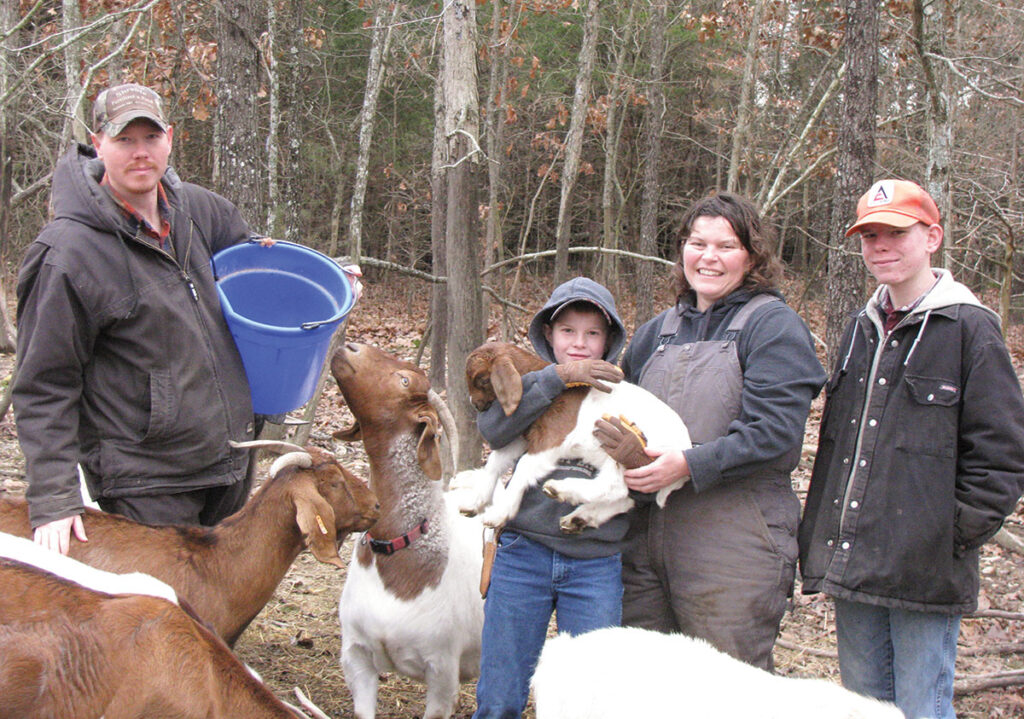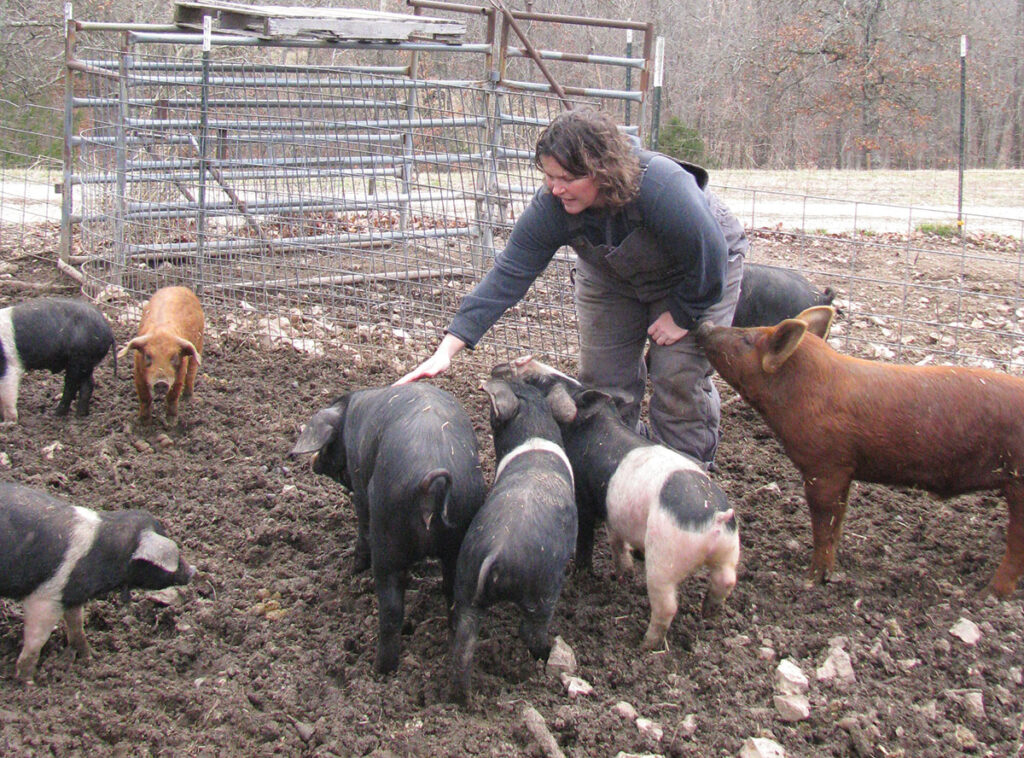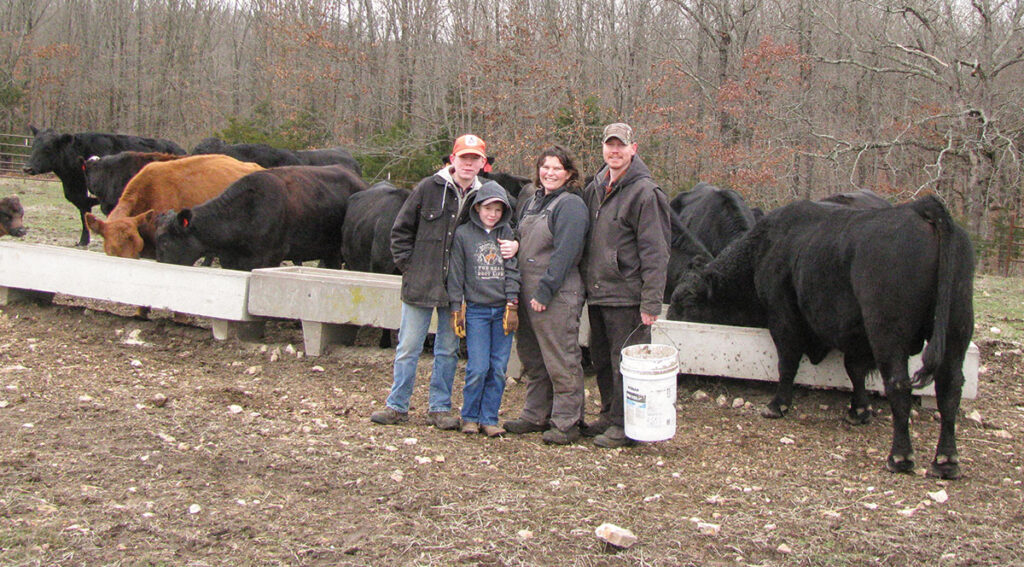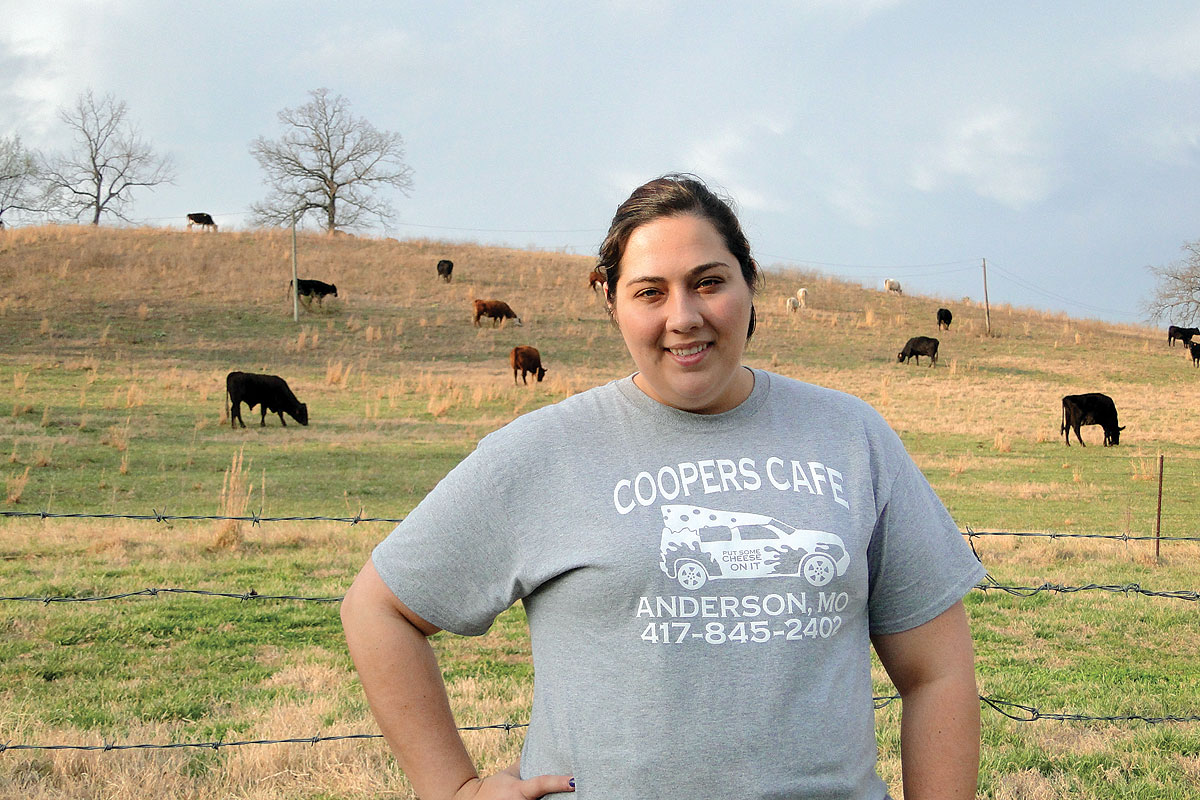
The Alexanders promote locally-grown beef and more
FORDLAND, MO. – Mark and Emma Alexander have lived at their farm near Fordland, Mo., for 10 years. The farm is in Webster County and 11 miles from the nearest town.
When they first moved to the farm, they had 40 acres and most of it is wooded. So they only had a couple of hogs. In 2015, they purchased an adjoining 80 acres. With the additional land, they were able to buy some beef cattle and goats.
In addition to the animals, Mark and Emma are raising two boys: Lucas, 14, and Travis, 9. The name of the farm is CopperTop Legacy Agriculture. Mark chose CopperTop because all the guys have red hair. It’s their legacy. Red hair is a family trait in both Mark and Emma’s families.
“We started with agriculture because we wanted to set something up that if the boys choose to carry on agriculture then they could take the name. It may be something different on down the road, but agriculture would apply,” Emma explained.
They talk about it being CopperTop Legacy Farm on their website “just to make it more personal to people who are connecting with us,” Emma said.
In 2013, they set up greenhouses, because Emma has a degree in horticulture.
“I had been doing landscape design and maintenance independently and got an opportunity to pick up some growing houses. So I started growing perennials,” she said.
That evolved into an opportunity to pick up a retail greenhouse at Apple Market in Rogersville.
In the fall of 2016, they bought two wether goats.
“We showed them at the fairs the summer of 2017 and sold them in the fall at a livestock auction,” Lucas, 14, said. After that, they bought a nanny and two goat kids. They also bought two other orphaned goat kids and bottle fed them.
“It was my 4-H project and it made some money,” Lucas said. They’ve been raising goats ever since. Lucas is in the Fordland Mighty Eagles 4-H Club. Emma is the club leader.
They currently have 40 to 45 goats. The goats are a meat breed influenced by Boer and Spanish breeds.
“We really like the Spanish influence because it just makes them heartier against all the perils of goat farming,” Emma said. “We try to keep them just a little bit mixed because they grow better and are heartier.”
Emma said the goats seem easier now because they’ve figured it out. Although she does admit they still require the most frequent attention. “There is definitely a learning curve to goats,” Emma said.
Mark and Emma have their goats and the boys each have their own goats. So they all have a kid crop. They either keep the females to build the herd or sell them.

The Alexanders started with pigs because of limited space and infrastructure.
“They supposedly were going to be easy and we were going to eat them,” Emma said.
They have mixed breed pigs, which they buy as feeders and raise to finishing. Travis said he and Lucas each pick a pig each year and show them at the fair and sell them.
“We each have a wether and a hog that we take to the Tri-County Fair. We show them and then we participate in the premium sale and sell our wether and our hog. That way we get the showing experience and make a little bit of money,”Lucas said.
“When we figured out the pigs were pretty simple, we have expanded and added more pigs each year,” Emma said. They sell the pigs directly to consumers on the hoof.
For Mark and Emma, it’s not all about the money. Mark said he believes it’s important for the kids to be involved on the farm “because of the family.”
“The farm brings a lot of diverse education,” he said. “They learn a lot about forage, grasses, silage, animal husbandry and such. They also learn about machinery. They get a very diverse education from the farm experience.”
Emma believes the farm life teaches the boys where food comes from and how it’s made. “But the bottom line on the farm is, if it needs to be done, you have to do it.” If they leave the farm and do something else, she wants them to have a good work ethic.
They have more than 20 head of commercial cattle. “We breed them in the wintertime and shoot for fall calving,” Lucas said. They use Balancer bulls.
“This last year we started a retail meat business. So we’re selling retail cuts,” Mark said. “We can sell from here, but we also have a couple of places in Rogersville that sells our meat for us. We sell at Turners Station and Thyme to Loaf.”
“We did the CopperTop entity as part of launching and doing the retail meat sales. Our consumer friendly slogan is: Locally grown for your family by our family. We want people to know us, because when you know where you’re food comes from it just tastes better,” Emma said.








